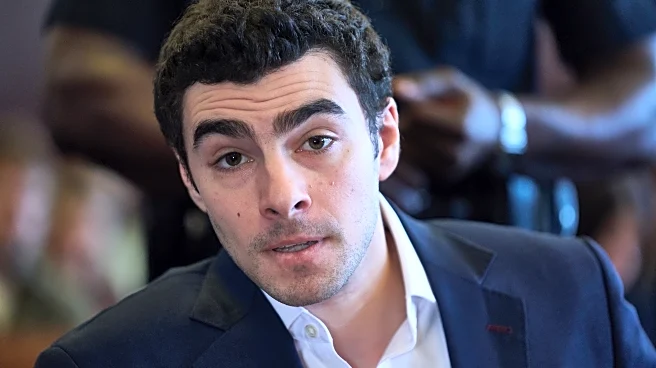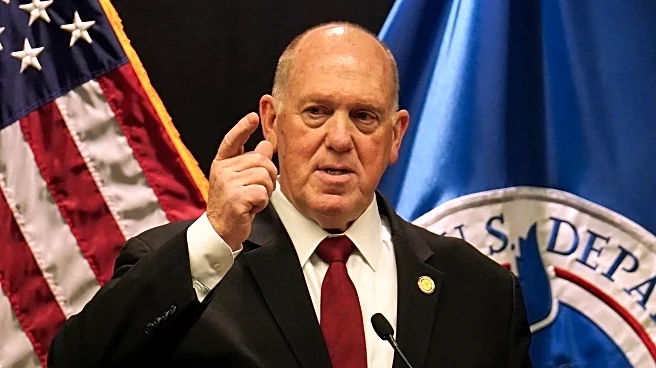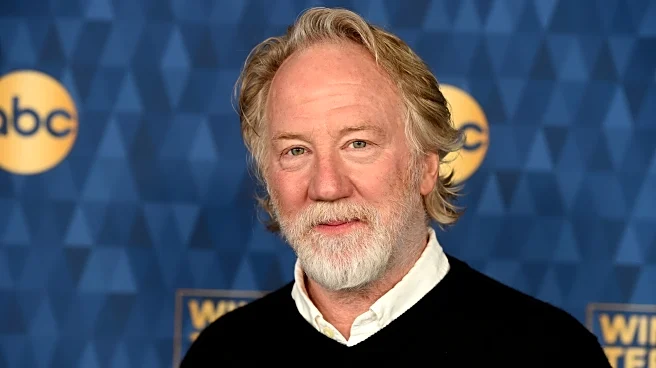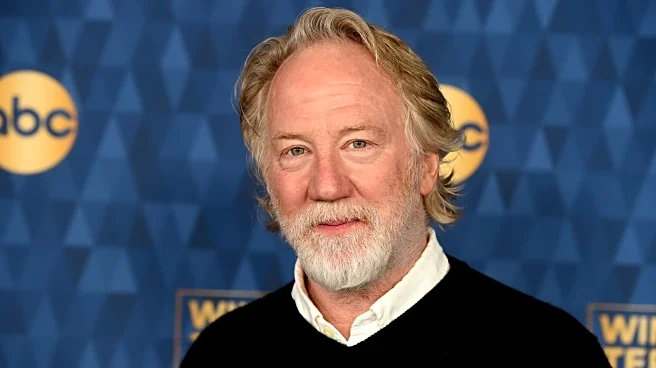What is the story about?
What's Happening?
Readers of the Los Angeles Times have expressed disappointment and anger over ABC's decision to suspend 'Jimmy Kimmel Live!' indefinitely. The suspension followed Kimmel's remarks about the politicization of Charlie Kirk's death, which were perceived as controversial. Letters to the editor reveal a strong sentiment against what is seen as corporate censorship and a threat to free speech. Some readers are considering boycotting ABC and Disney products, arguing that the decision undermines open dialogue and free expression. The incident has sparked a broader conversation about the role of corporations in shaping public discourse.
Why It's Important?
The public reaction to Kimmel's suspension highlights the growing concern over corporate influence on media and free speech. As major corporations like ABC and Disney face backlash, the incident underscores the tension between financial interests and the protection of free expression. This situation could lead to a reevaluation of corporate policies regarding controversial content and their impact on public trust. The potential boycott by viewers reflects a broader societal push for accountability and transparency in media practices, which could influence corporate strategies and consumer behavior.
What's Next?
The calls for a boycott may prompt ABC and Disney to reconsider their decision and address public concerns about censorship and free speech. Media companies might face increased pressure to clarify their stance on controversial content and ensure that their platforms support diverse viewpoints. The situation could lead to discussions among stakeholders, including media executives, advertisers, and civil society groups, about the balance between corporate interests and the protection of free expression. This could result in changes to media policies and practices, affecting the future landscape of television programming.
Beyond the Headlines
The suspension of Kimmel's show raises questions about the ethical responsibilities of media companies in fostering open dialogue and challenging authority. The incident may lead to a broader examination of the role of comedy in political discourse and its impact on shaping public opinion. As viewers demand accountability from media corporations, the situation could influence how companies approach controversial topics and the extent to which they allow their platforms to serve as spaces for diverse viewpoints. This could have long-term implications for media practices and the relationship between corporations and consumers.
















